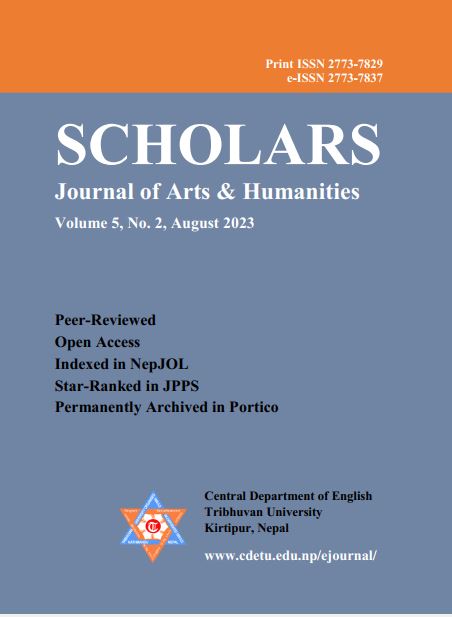Indian Partition and Life in the Aftermath: The Traumatic Memory in Amitav Ghosh’s The Shadow Lines
DOI:
https://doi.org/10.3126/sjah.v5i2.57503Keywords:
Partition trauma, psychological trauma, traumatic memory, socio-political instabilityAbstract
Literary depiction of contemporary socio-political escalations remains a major issue in Amitav Ghosh’s The Shadow Lines as it dramatizes the plight of Chandrashekhar Datta Chaudhuri’s family members in the wake of Indian partition. This paper critically examines the reasons for shattered lives and trauma in the characters of The Shadow Lines. This qualitative analysis of the text deploys the theoretical perspectives of memory studies. To substantiate the objective, this study explores how the historical partition and its consequent socio-political uprising killed so many people, displaced the family members from their home and country, haunted them with dreadful memories, shattered the lives and consequently traumatized them psychologically for ages. Understanding the impacts of the political spaces on the personal lives of the characters supports people to comprehend the extent of traumatic consequences in a similar context.
Downloads
Downloads
Published
How to Cite
Issue
Section
License

This work is licensed under a Creative Commons Attribution 4.0 International License.
© Central Department of English, Tribhuvan University and Authors




